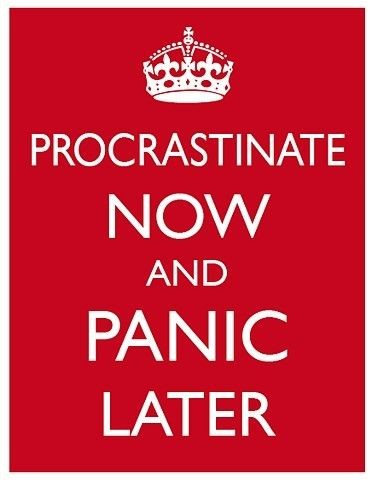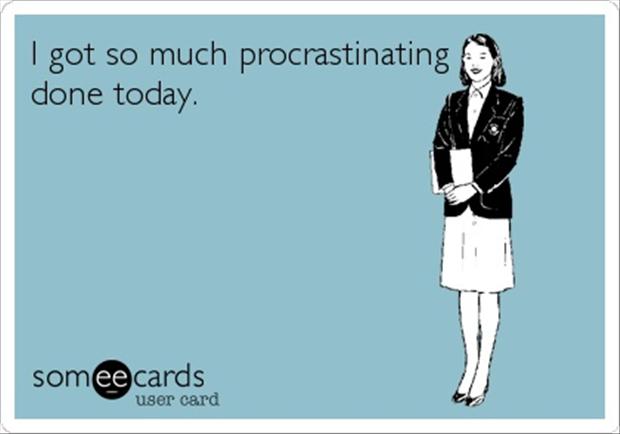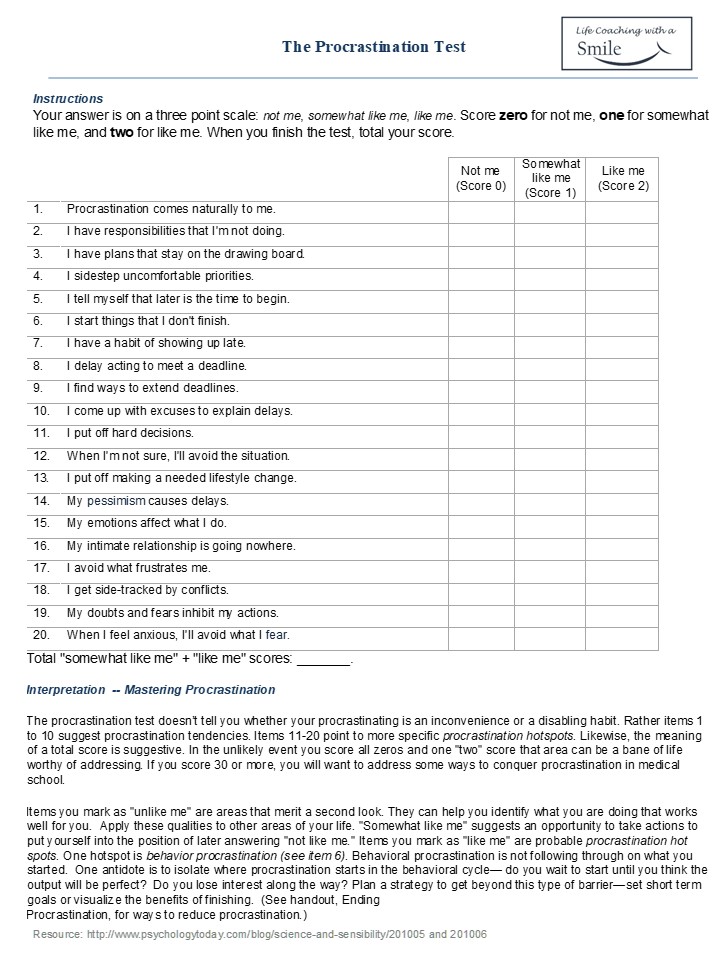This article is the first of a three part series on a topic that was requested by several clients. Procrastination! I am not just trying to be funny, but it really was hard for me to get started on the research. In the past, I have used several techniques over the years to help clients with procrastination. But I kept putting the research for this article off. A little voice was telling me I already knew what write about.
At last, I finally jumped in. In this introduction to procrastination we will cover what procrastination is, why it happens and how to work on a fix. In the next article we will find out what kind of procrastinator you are. Finally, article 3 includes three tips to help each kind of procrastinator and several ideas for us all.
Procrastination Defined

If you postpone or delay a task, several tasks or a set of tasks, you are a procrastinator. (Therefore, it is safe to say we are all procrastinators, at least occasionally.) The force that keeps you from following through on what you set out to do is procrastination.
What a strange phenomenon procrastination is. In fact it is acting contrary to your intent to accomplish something important by postponing it or doing something less important. At the time it seems like a way to make life more enjoyable (not doing something you don’t want to do) but procrastination almost always adds to your stress because important things cannot be put off forever. They just keep hanging over your head.
It is Dangerous to Put Things Off
Is it really a big deal? It may not seem like it, but studies have shown procrastination can turn into a serious habit that can easily take over many parts of your life. Lost opportunities, problems at work, late fees, credit issues, and health problems can develop because of procrastination.

So if we know what is good for us, what logic tells us we should do, why do we avoid doing those things? What is going on in our brain?
Why We Procrastinate
James Clear, (jamesclear.com) author of Atomic Habits says, “We have a tendency to care too much about our present selves and not enough about our future selves. We like to enjoy immediate benefits in the present, especially if the costs of our choices don’t become apparent until far in the future.”
It is easy to see the value in doing things with long term benefits but when it comes time for action our brain is thinking about and desiring instant gratification. The future self can set goals but only the present self can take action. The future self wants to be skinny, but the present self wants a doughnut.
Conquer Procrastination (Get Ready)
As we have seen, procrastination can cause stress, guilt, anxiety, loss of opportunity and more. If you’ve ever tried to get past it and could not or gone to sleep with great intentions only to wake to the same thought pattern you are not alone. To eliminate procrastination you have to understand what you are doing. You should learn what is your procrastination type. Once you know that, you can create a personalized system to help. The next article will cover procrastination types and how to determine your type. Meanwhile think about times when you have procrastinated and why and bring those experiences with you. You might find the following quiz (from the folks at Psychology Today helpful.


Related Article: Managing Stress
* Please leave a comment below. You may comment anonymously or you may use your first name. We may post or quote your comment on the website. We will never post or share your last name, email address or any other personal identifying information.
